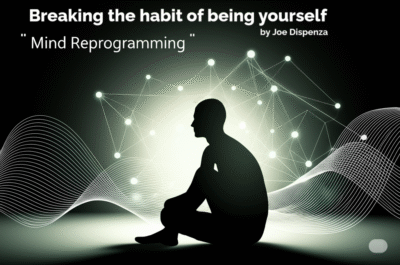Introduction
Self Improvement often sparks a journey toward better habits, greater confidence, and enhanced productivity. However, many people assume that boosting their skills and mindset automatically heals emotional wounds or prevents psychological distress. Therefore, understanding the distinct purposes and methods of self improvement versus mental health care proves crucial. By exploring scientific studies, real-world examples, and clear action steps, you will learn how to pursue personal growth without neglecting your emotional well-being. Ready to uncover how these paths diverge and intersect on your journey?
Table of contents
- 1. What Does Self Improvement Mean in Practical Terms?
- 2. What Constitutes Mental Health?
- 3. How Do Goals and Habits Shape Self Improvement?
- 4. How Can Personal Growth and Mental Health Support Each Other?
- 5. What Common Myths Surround Personal Growth and Mental Health?
- 6. What Practical Steps Ensure Balanced Personal Growth and Mental Well-Being?
- 7. How to Recognize When to Shift from Self-Help to Professional Care?
- Conclusion
1. What Does Self Improvement Mean in Practical Terms?
Self improvement refers to intentional efforts that individuals make to develop skills, knowledge, or habits. Unlike therapy protocols, which address psychological symptoms, self improvement projects focus on goal achievement and performance enhancement.
- Goal Setting: Researchers Kyllo & Landers conducted a 1995 meta-analysis showing that participants who set specific, challenging goals outperformed those given general instructions by significant margins (e.g., more push-ups completed).
- Habit Formation: Experts highlight that breaking large aims into daily routines—such as journaling for 10 minutes or reading one chapter—builds momentum and fosters consistency.
- Skill Acquisition: Whether learning a new language via spaced repetition apps or improving public speaking through Toastmasters, individuals apply structured practice to sharpen competencies.
Therefore, self improvement serves as a roadmap for evolving capabilities, guided by measurable objectives and feedback loops rather than clinical assessment. By contrast, mental health strategies prioritize emotional balance and resilience.
2. What Constitutes Mental Health?
Mental health encompasses a state of emotional and psychological well-being in which people:
- Realize their abilities,
- Cope with normal stresses,
- Work productively, and
- Contribute to their community.
Key Components Include:
- Emotional Regulation: Techniques—such as deep breathing or cognitive restructuring—help navigate anxiety or anger without judgment.
- Social Connectedness: Studies show that supportive relationships buffer stress and enhance life satisfaction. For example, walking 7,000 steps daily correlated with a 31% reduction in depression risk across 33 observational studies involving 96,000 adults.
- Clinical Interventions: Licensed practitioners may employ cognitive-behavioral therapy or medication to treat mental health disorders. In a meta-analysis of 419 randomized controlled trials (n = 53,288), mindfulness-based and positive psychology interventions achieved the largest improvements in well-being among both clinical and non-clinical populations.
However, while self improvement concentrates on performance metrics, mental health efforts aim for stability, symptom relief, and life fulfillment. Blurring these goals can lead to frustration when productivity hacks fail to address underlying emotional challenges.
3. How Do Goals and Habits Shape Self Improvement?
Setting clear targets and embedding supportive rituals lie at the heart of self improvement. Here’s how to apply these principles effectively:
- Define SMART Goals: Ensure objectives are Specific, Measurable, Achievable, Relevant, and Time-bound. For instance, commit to writing 500 words daily rather than “become a better writer.”
- Focus on Keystone Habits: Identify routines that unlock broader gains—such as morning exercise boosting energy for creative tasks.
- Track Progress: Use habit-tracking apps or simple checklists; seeing streaks encourages continuation.
- Adjust Based on Feedback: If a 4-week challenge feels overwhelming, scale back frequency or duration to maintain momentum.
A case study of university students demonstrated that integrating short goal-setting workshops increased completion rates of academic tasks by 20%, illustrating the power of structured ambition.
Additionally, linking habits to identity—telling yourself “I am a writer” rather than “I write”—reinforces consistency, according to behavior scientists. Thus, self improvement thrives on habitual design and measurable achievements.
4. How Can Personal Growth and Mental Health Support Each Other?
When pursued together, Personal Growth and mental health care form a virtuous cycle rather than competing paths. On one hand, strengthening your skills and habits can bolster emotional resilience; on the other, a stable mind enhances your capacity to learn and change.
- Integrated Skill Building: For example, practicing mindful journaling not only refines your writing habit but also helps you identify negative thought patterns. Therefore, you gain both a concrete diary ritual and greater self-awareness.
- Synergistic Routines: A 2022 workplace study revealed that employees who combined weekly goal-setting with brief group check-ins reported 38 % higher life satisfaction and 22 % greater task completion than those using either method alone. By merging accountability (a Personal Growth tactic) with social support (a mental health strategy), participants thrived on both fronts.
- Feedback Loops: Regularly ask yourself, “Which new habit helped my mood this week?” and “Did my emotional state limit my ability to learn?” Such questions create insight loops that guide adjustments, ensuring you don’t over-invest in performance at the expense of well-being.
Moreover, when therapists incorporate goal-setting worksheets from Positive Psychology into sessions, clients often experience faster symptom relief alongside long-term gains in confidence. Consequently, blending techniques yields outcomes greater than the sum of their parts.
5. What Common Myths Surround Personal Growth and Mental Health?
Misconceptions can derail progress, causing people to mix up or neglect one domain entirely. Below are three widespread myths and how to correct them:
- Myth: “Improving Habits Fixes Depression.”
- Reality: While structured routines can lift mood temporarily, clinical depression often involves neurochemical factors that require targeted interventions. If you notice persistent low energy despite your Personal Growth plan, it signals a need for professional support rather than doubling down on new habits.
- Myth: “Therapy Alone Solves Productivity Issues.”
- Reality: Therapy excels at processing emotions and building coping skills—but it rarely provides detailed frameworks for time management or skill mastery. If you finish counseling sessions feeling calmer yet still struggle to meet deadlines, supplement therapy with a SMART-goal approach or productivity workshops.
- Myth: “Self-Help Books Replace Mental Health Care.”
- Reality: Popular guides may offer valuable tips, yet they lack the personalized assessment and feedback that a licensed practitioner provides. Therefore, treat books as companions to care rather than stand-alone cures.
In addition, debunking these myths helps you allocate effort wisely—investing in the right mix of self-driven challenges and therapeutic support.
6. What Practical Steps Ensure Balanced Personal Growth and Mental Well-Being?
To harmonize skill development with emotional health, follow this four-stage roadmap:
- Assess Your Starting Point
- Self-Audit: Rate your current stress levels, satisfaction in key life areas (work, relationships, self-care), and top skills you wish to improve. Use a simple 1–10 scale for each.
- Flag Red Zones: Anything rated 5 or below signals an area needing mental health focus rather than purely performance-oriented goals.
- Design Dual-Purpose Goals
- Example: Instead of “Improve sales pitch,” choose “Practice sales pitch with a peer weekly to build confidence and reduce presentation anxiety.”
- Why It Works: You sharpen a professional skill while simultaneously addressing emotional blocks through social exposure.
- Build Supportive Habits
- Micro-Rituals: Start each day with 5 minutes of deep breathing before reviewing your to-do list. This anchors productivity in calmness.
- Accountability Partners: Pair up with a friend or colleague who cares about both your growth and your well-being—check in on both progress metrics and mood trackers.
- Monitor, Adjust, and Reflect
- Weekly Review: Spend 15 minutes on Sunday evaluating which habits boosted your mood and which fell short of your skill targets.
- Pivot When Necessary: If a new exercise routine heightens stress rather than alleviating it, scale it back or swap to a gentler activity like walking.
Therefore, by weaving self-improvement steps with mental health check-ins, you maintain forward momentum without ignoring emotional signals.
7. How to Recognize When to Shift from Self-Help to Professional Care?
Even the most disciplined Personal Growth plan cannot substitute for expert intervention when certain signs emerge. Watch for these red flags:
- Persistent Low Mood: Feeling down for more than two weeks, with little relief from your usual self-care strategies.
- Functional Impairment: Struggling to fulfill work, family, or study responsibilities despite structured goal frameworks.
- Physical Symptoms: Ongoing sleep disturbances, appetite changes, or chronic fatigue not explained by lifestyle factors.
- Social Withdrawal: Losing interest in relationships and activities you once enjoyed, even as you chase new achievements.
- Harmful Thoughts: Experiencing repeated thoughts of worthlessness or self-harm.
If you notice any, reach out to a qualified counselor or psychiatrist. Early professional support often prevents minor concerns from escalating into crises.
Conclusion
Embracing Personal Growth enriches your talents and habits, whereas tending to mental health secures your emotional foundation. Therefore, by distinguishing their unique aims, debunking common myths, and applying a combined roadmap, you empower yourself to learn, adapt, and flourish—mindfully and sustainably. What step will you take first on this balanced journey?
references
- Kyllo & Landers (1995). Goal Setting in Sport and Exercise: A Research Synthesis to Resolve the Controversy, Journal of Sport & Exercise Psychology. L. Blaine Kyllo & D. M. Landers, Apr 1995. [Human Kinetics] journals.humankinetics.com
- World Health Organization (2018). Mental Health: Strengthening Our Response, Mar 2018. [WHO Fact Sheet] World Health Organization (WHO)
- World Health Organization (2016). Mental Health: A State of Well-Being…, 2016. [WHO GHO Data] World Health Organization (WHO)
- World Health Organization (2023). Mental Health Overview, 2023. [WHO Health Topics] World Health Organization (WHO)
- Cuijpers, P. (1997). Bibliotherapy in Unipolar Depression: A Meta-Analysis, J Behav Ther Exp Psychiatry, Jun 1997. [PubMed] PubMed
- Cuijpers, P., Donker, T., van Straten, A., Li, J., & Andersson, G. (2011). Self-Guided Psychological Treatment for Depressive Symptoms: A Meta-Analysis, PLOS ONE 6(6): e21274. [PLOS ONE] Wikipedia – Die freie Enzyklopädie
- Sin, N. & Lyubomirsky, S. (2009). Positive Psychology Interventions: A Meta-Analysis of Randomized Controlled Studies, J Consult Clin Psychol 77(5): 635–646. [PMC] PMC
- van Agteren, R. et al. (2021). Mindfulness-Based and Multi-Component Positive Psychological Interventions: A Meta-Analysis, Mindfulness AU, Apr 2021. [University of Aarhus] mindfulness.au.dk
- Spijkerman, M. P. J., Pots, W. T. M., & Bohlmeijer, E. T. (2016). Effectiveness of Online Mindfulness-Based Interventions, Clin Psychol Rev 45: 102–114. [Clinical Psychology Review] WoWe@ED
- Bizzozero-Peroni, B. et al. (2024). Daily Step Count and Depression in Adults: A Systematic Review and Meta-Analysis, JAMA Network Open 7(12): e2451208. [JAMA Network Open] PubMed
- Matthews, G. (2025). Survey: Writing Goals Boosts Achievement by 42%, Engagedly, Mar 19, 2025. [Engagedly] Engagedly
- Morisano, D., Hirsh, J. B., Peterson, J. B., Pihl, R. O., & Shore, B. M. (2010). Setting, Elaborating, and Reflecting on Personal Goals Improves Academic Performance, J Appl Psychol 95(2): 255–264. [Journal of Applied Psychology] otis.edu
- Verywell Mind (2015). What Mental Health Actually Means, 2015. [Verywell Mind] Verywell Mind



















